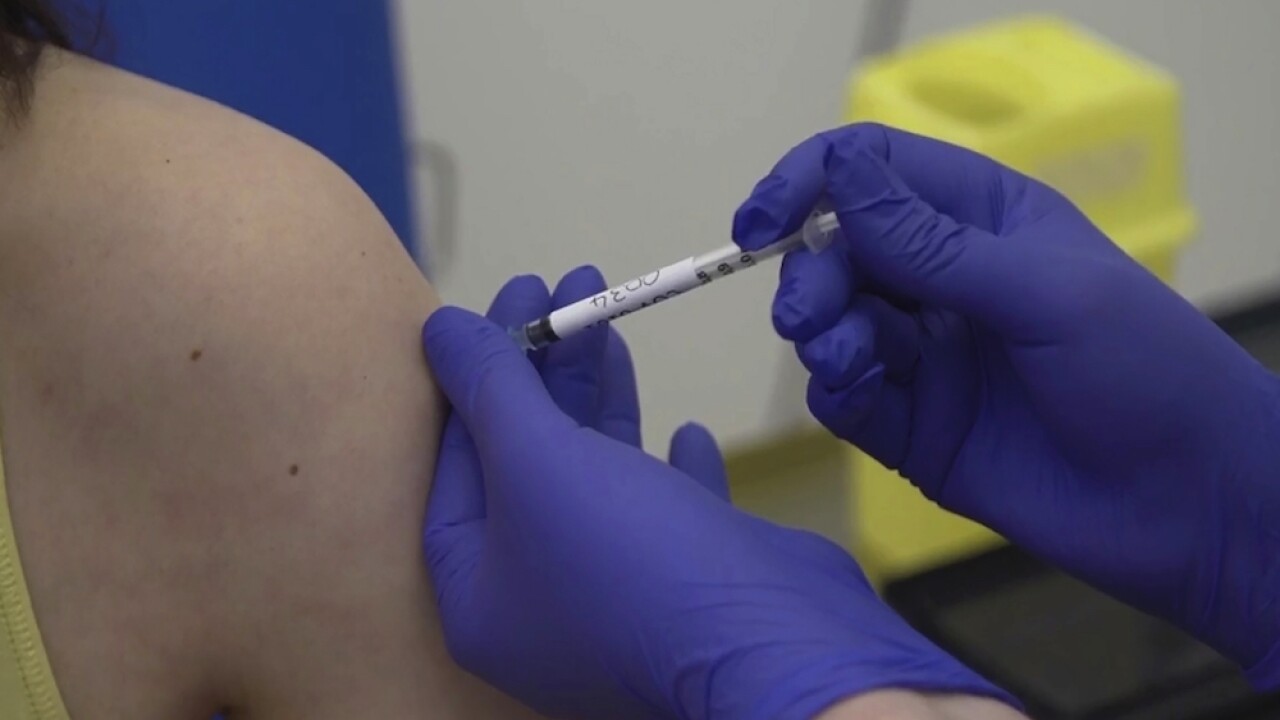KANSAS CITY, Mo. — Whether you definitely will or will not take a COVID-19 vaccine, health officials are finding people have questions surrounding the side effects and whether the vaccine will work.
The Lawrence-Douglas County Public Health Department recently issued a survey about COVID-19 vaccine willingness. A little more than 3,000 people responded.
Out of the respondents, 55% said they would definitely get the vaccine and 23% said they would probably get the vaccine, while 11% of respondents said they definitely wouldn't and 10% said they probably wouldn't.
"In terms of negative decision-making factors, the top ones were that people felt unsure about potential for side effects," said Alex Kimball Williams, health equity planner at Lawrence-Douglas County Public Health. "They also wanted more information about the vaccine in general and they, on the other end, did not feel the vaccine was effective or safe."
The survey found that most people in Lawrence said they planned to take the vaccine, but people in more rural areas, such as Baldwin and Lecompton, said they wouldn't.
The survey also showed racial differences among the Black and Native American communities, who said they are least willing to get the vaccine.
Even among those who said they would take the vaccine, there were still concerns expressed throughout the survey.
Kimball Williams said no matter if people answered yes or no, it was clear where people like to get their information.
"Overwhelmingly, nobody trusted social media, nobody trusted the national government leaders," Kimball Williams said. "A lot of people have trust for local health agencies and national health agencies and their own personal doctor."
Many people responded that they don't trust the Centers for Disease Control and Prevention or the Food and Drug Administration like they have in the past. Some people also think the vaccine is politically influenced.
Knowing people trust local and national health leaders will help the health department inform its strategy about what information it puts out on social media or online.
Kimball Williams said health department staff were surprised to see such nuanced and "sophisticated" reasoning from people who have doubts.
"A lot of people thought that not enough people in the community will get vaccinated and therefore they don't want to get vaccinated," Kimball Williams said.
Kansas is set to receive 24,000 doses of the vaccine from Pfizer in mid-December, with the priority going to medical workers, followed by those in nursing homes. The vaccine requires two shots, and the second round could come at the end of the month.
"A lot of people were happy with quarantine life and they felt more comfortable continuing to quarantine than taking a chance on the vaccine," Kimball Williams said.
Dr. Sanmi Areola with the Johnson County Department of Health and Environment said he understands why people would be hesitant at first.
"To get to this level, the so-called 'guinea pigs' have already taken it," Areola said. "We've had tens of thousands of people take these vaccines. And again, the safety has been very, very impressive as well as the efficacy."
Areola said some outcomes show more than a 95% efficacy.
Areola said he expects people will open up to it more once the first round of vaccines are administered and they see notable people getting the vaccine.
"Even when some of them come with some side effects, it's still the best path of getting to where we are," Areola said. "It's the best path to get back to our normal way of living."




